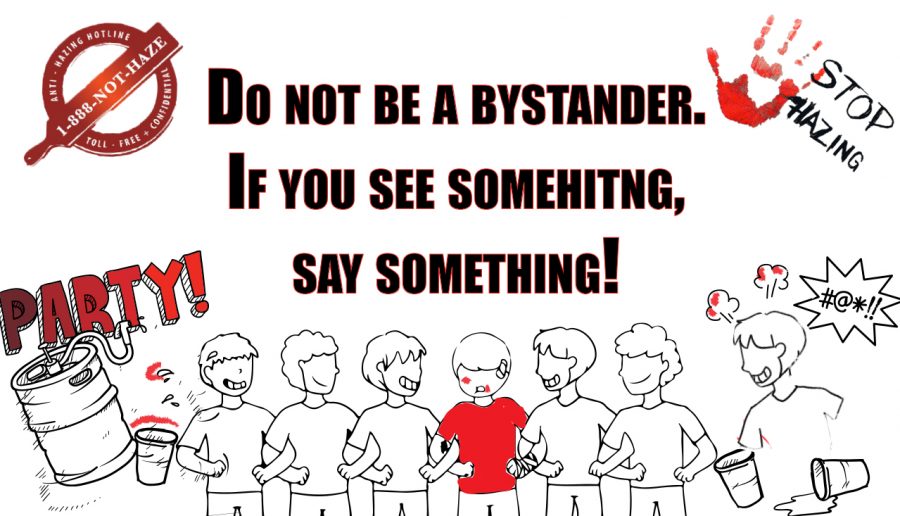New members should stop hazing too
We should all understand it by now- hazing is wrong. The lasting effects can be physiologically and/ or physically damaging to all involved. Sometimes, the effects can even be deadly. For some time now, colleges across America have been teaching students how to identify and stop hazing, as well as getting them to pledge against it.
So why is hazing still such a problem? According to Babson College, “students recognize hazing as part of the campus culture.”
I believe that the issue lies not in people understanding what to expect or how to stop hazing, as some college administrators make it appear, but in the exact opposite- people expect and prefer to be hazed.
According to an anonymous online survey from Inside Hazing taken by both members of sororities and fraternities, “72 percent of respondents agree that it is important to tolerate psychological stress,” that comes with hazing. Current organization members and new members believe that hazing is essential. Their attitudes toward hazing are no different than that to a hard goal.
New members could have put a stop to this old and dangerous tradition long ago. Instead, they believe that being welcomed into a sorority, fraternity or any other club has to be a hard task to overcome or it won’t mean as much when they are a part of it.
According to Babson College, nine out of 10 students who have experienced hazing behavior in college do not consider themselves to have been hazed.
New members go through numerous hazing practices such as being isolated, degraded and forced to participate in drinking games.
Even worse, new members endure it all with the spirit that if they can get through the “tough times,” they will have earned being on the other side. If this idea continues to pass through the university generations, hazing will never end. If we really want hazing to stop, we have to kill this mindset.
Being a part of an exclusive organization or club is, of course, a privilege in and of itself. But this privilege should be achieved through demonstrating the ideals and expectations of the organization.
It should not be achieved through current group members dehumanizing and/ or forcing new members to participate in things that make them question their and the organization’s integrity. If the latter is occurring, the pledge may be a victim of hazing and needs to report it before things get out of hand.
Try not to look at joining an exclusive group as something you would do anything to get into, as that is how hazing starts. Instead, live up to the organization’s requirements and let the rest go from there.
And as an extra precaution, if a group you have been wishing to join is known around campus to haze new members, you may want to reevaluate your decision. That organization may not be practicing exactly what their creed preaches.





